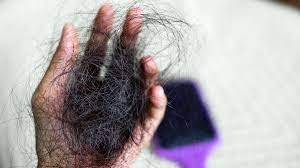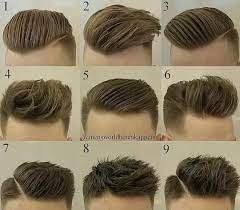Hair loss is a common problem affecting millions of people worldwide. It can range from mild thinning to complete baldness, and the causes can vary from medical conditions to genetics and lifestyle choices.
Understanding the causes of hair loss is essential to determine appropriate treatments and preventing further damage. In this article, we will explore the various possible causes of hair loss and discuss which ones are most commonly associated with this condition.
Genetics
Hair loss is a common issue that affects millions of people worldwide. While there are numerous factors responsible for hair loss, genetics plays a significant role in determining the likelihood of an individual experiencing hair loss.
Genetics can influence the rate, pattern, and severity of hair loss. For instance, male-pattern baldness is caused by a genetic sensitivity to dihydrotestosterone (DHT), which causes the miniaturization of hair follicles.
Researchers have identified several genes that contribute to hair loss. One such gene is the AR gene which regulates the production and activity of DHT receptors in hair follicles.
Another gene associated with hair loss is SRD5A2, which encodes an enzyme responsible for synthesizing DHT from testosterone.
Additionally, certain variations in genes involved in inflammation and immune response can affect scalp health and contribute to conditions like alopecia areata.
While genetics plays a crucial role in causing most types of hair loss, other factors like stress, nutrient deficiencies, medications, hormones, and underlying medical conditions can also trigger or exacerbate it.
Understanding how genetics contributes to hair loss can help individuals take proactive measures to minimize its impact or seek appropriate treatment options if necessary.
Hormonal Changes
One of the most common causes of hair loss is hormonal changes. Hormones play a major role in the growth and maintenance of hair follicles, which is why imbalances can lead to shedding or thinning.
Androgens, specifically dihydrotestosterone (DHT), are hormones that contribute to male pattern baldness by shrinking hair follicles over time.
Women can also experience hormonal hair loss during pregnancy, menopause, or due to conditions like polycystic ovary syndrome (PCOS).
Cortisol and thyroid hormones
In addition to DHT, other hormones like cortisol and thyroid hormones can also impact hair growth. High levels of cortisol, often associated with stress, can lead to an increase in shedding while low levels of thyroid hormones can cause brittleness and breakage.
It’s important to speak with a doctor if you suspect hormonal imbalances may be contributing to your hair loss as they may recommend hormone replacement therapy or other treatments.
Overall, understanding how hormones impact our bodies – including our hair – is crucial in addressing any concerns related to hair loss.
By working with healthcare professionals and making lifestyle changes that promote balance, individuals experiencing hormonal imbalances can take steps towards healthier and fuller-looking locks.
Stress
Stress is one of the most common causes of hair loss. When a person is under stress, their body produces cortisol, a hormone that can cause hair follicles to shrink and eventually stop producing new hair.
This type of hair loss is called telogen effluvium, which usually occurs within three months after experiencing significant stress.
Alopecia areata
Stress can also lead to an autoimmune disorder called alopecia areata. This condition occurs when the immune system attacks hair follicles, causing sudden hair loss in patches or clumps.
Although there is no cure for this condition, it can be managed through treatments such as corticosteroids and immunosuppressants.
To prevent stress-related hair loss, it’s important to manage stress levels through techniques such as meditation, exercise or therapy.
Eating a balanced diet rich in vitamins and minerals like biotin and iron can also help promote healthy hair growth.
In some cases, seeking medical advice from a dermatologist may be necessary to properly diagnose and treat any underlying conditions that may be contributing to hair loss.
Medication Side Effects
One of the most common side effects of medication is hair loss. Many drugs can cause hair to thin or fall out, including chemotherapy agents, blood thinners like heparin and warfarin, acne medications such as isotretinoin, and antidepressants like fluoxetine.
The exact mechanism behind this phenomenon is not always clear, but it often involves interference with normal hair growth cycles.
Chemotherapy
For example, chemotherapy targets rapidly dividing cells in the body, including those responsible for hair growth. As a result, many cancer patients experience significant hair loss during treatment.
Induced alopecia
Similarly, certain acne medications may alter hormone levels in the body that contribute to hair loss. In some cases, drug-induced alopecia (hair loss) may be reversible once the offending medication is discontinued.
While medication side effects can be frustrating and even distressing for patients experiencing them, it’s important to understand that they are often temporary and manageable with appropriate medical care.
If you are concerned about potential side effects from a medication you are taking or have questions about managing existing symptoms related to drug therapy, talk to your healthcare provider for guidance and support.
Poor Nutrition
Poor nutrition is one of the major causes of hair loss in both men and women. Our hair follicles require a constant supply of nutrients to function correctly, and if we’re not getting enough vitamins and minerals, this can lead to thinning or balding.
Specifically, deficiencies in iron, protein, biotin, zinc, and vitamin D have been linked to hair loss.
Iron
Iron is necessary for the production of hemoglobin which carries oxygen throughout our bodies.
When there isn’t enough iron in our system it can lead to anemia which restricts blood flow and deprives hair follicles of essential nutrients.
Protein
Protein makes up the structure of our hair strands so when we don’t get enough protein in our diet it can cause weak or brittle hair that falls out easily.
Biotin
Biotin plays a role in keratin production which is the main component of our hair so a lack of biotin can result in slow growth or even breakage.
Overall, poor nutrition can be detrimental to your overall health as well as your appearance.
Ensuring you are consuming a balanced diet with adequate amounts of all necessary vitamins and minerals is essential for maintaining healthy hair growth patterns.
Excessive Styling
Excessive styling is one of the most common reasons for hair loss in both men and women.
Styling tools such as hair straighteners, curling irons, and blow dryers can damage the hair shaft, leading to breakage and thinning. These tools generate heat that causes moisture to evaporate from the hair strands, leaving them dry and brittle.
In addition to heat styling tools, chemical treatments like coloring or relaxing can also contribute to excessive styling.
Chemical treatments break down the structure of the hair strand, weakening it over time until it becomes prone to breakage. Overuse of these treatments or using them incorrectly can cause damage that leads to significant hair loss.
Use of Precautions
To prevent excessive styling from causing hair loss, it’s essential to take a few precautions when using these tools. Using a heat protectant spray before styling with hot tools can help reduce damage caused by high temperatures. Also, reducing how frequently you use hot styling tools or chemical treatments can limit their damaging effects on your precious locks.
Conclusion
In conclusion, finding the cause of hair loss is crucial in successfully treating the condition.
While genetics play a significant role in hair loss, there are other factors to consider such as hormonal changes, nutritional deficiencies, and underlying medical conditions like thyroid disorders or autoimmune diseases.
Identifying the root cause will help determine the appropriate treatment plan.
It’s important to note that certain lifestyle choices can also contribute to hair loss. For example, excessive heat styling, tight hairstyles that pull on the scalp, and harsh chemicals used in hair products can all damage the hair and lead to breakage and thinning.
By making simple changes like using gentle shampoos and avoiding tight hairstyles, individuals may be able to reduce their risk of further hair loss.
In summary, while it may take some time and effort to identify the cause of one’s hair loss, doing so is essential for effective treatment.
With proper diagnosis and care for underlying conditions combined with healthy habits such as a balanced diet and gentle styling practices, many individuals can regain healthier-looking locks.






Be First to Comment